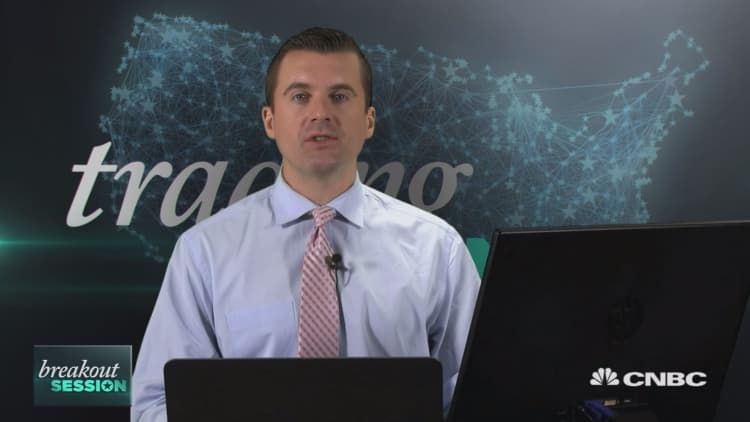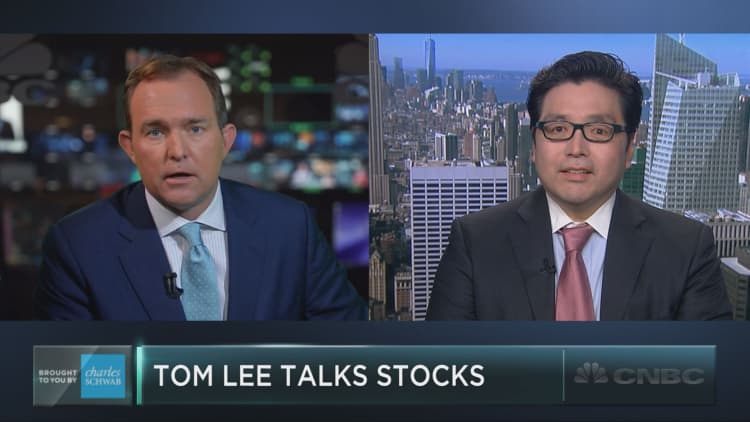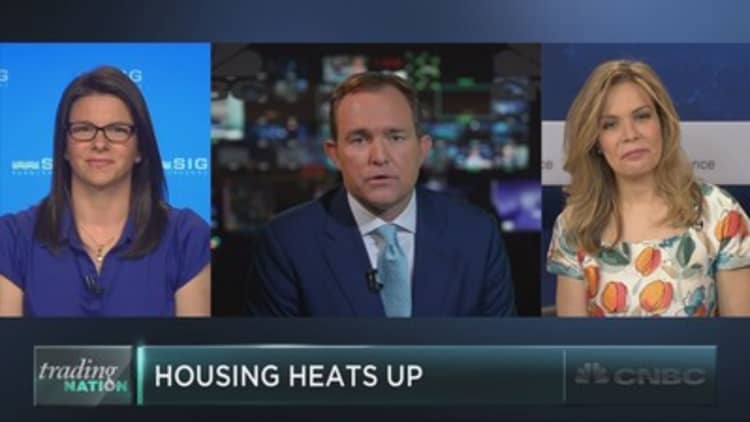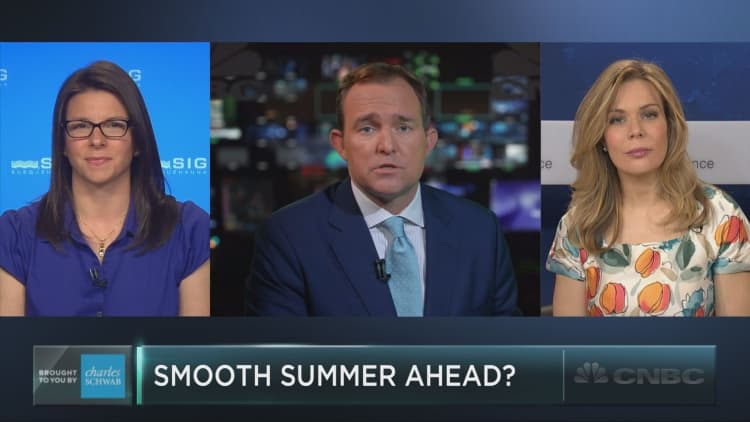



Oil and the stock market used to move in tandem, but the relationship between crude and stocks has become much more casual in recent weeks.
On Thursday, Todd Gordon of TradingAnalysis.com cautioned investors about continuing to rely on the oil rally to determine market trends.
"You'll notice that in just the last several months, that correlation has started to move lower and actually moved into the negative territory — that means the two move in opposite directions," he said on CNBC's "Trading Nation." "So my point is you can't count on rallying crude oil to continue to propel stocks higher."
According to Gordon's charts, oil and stocks were highly correlated for a good period of time through 2015 and into 2016, and only in recent months have they started moving apart.
But Gordon also believes the weakening relationship between can actually lead to a smart options play. Without oil's support, the chart of the Russell 2000 ETF (IWM) actually looks rather weak, he said. On a short term chart of the IWM, the technical analyst finds that the ETF has violated a recent uptrend, creating a potential level of resistance.
His plan is to sell a call spread on the IWM. Not only will he get to receive money just for making the trade, but even if small caps end up rising a bit, the trade could still wind up being profitable.
"You can make money if you're right and the market moves down, [but] we can also make a bit of money if the market goes sideways and we can even make some money if we go a little higher. So this is a bit of a hedge rather than outright shorting an uptrend," he said.
Specifically, Gordon is selling the 114-strike calls expiring on June 3 and buying the 115-strike calls expiring on the same day. He takes in a credit of roughly 40 cents for putting on the trade, or $40 per options contract.
If the IWM remains below $114 next Friday, Gordon gets to keep that entire amount. His breakeven is at $114.40, and if the ETF closes at $115 or above, he will end up losing $60 per contract.
Read More$50 oil won't last long: Kilduff





